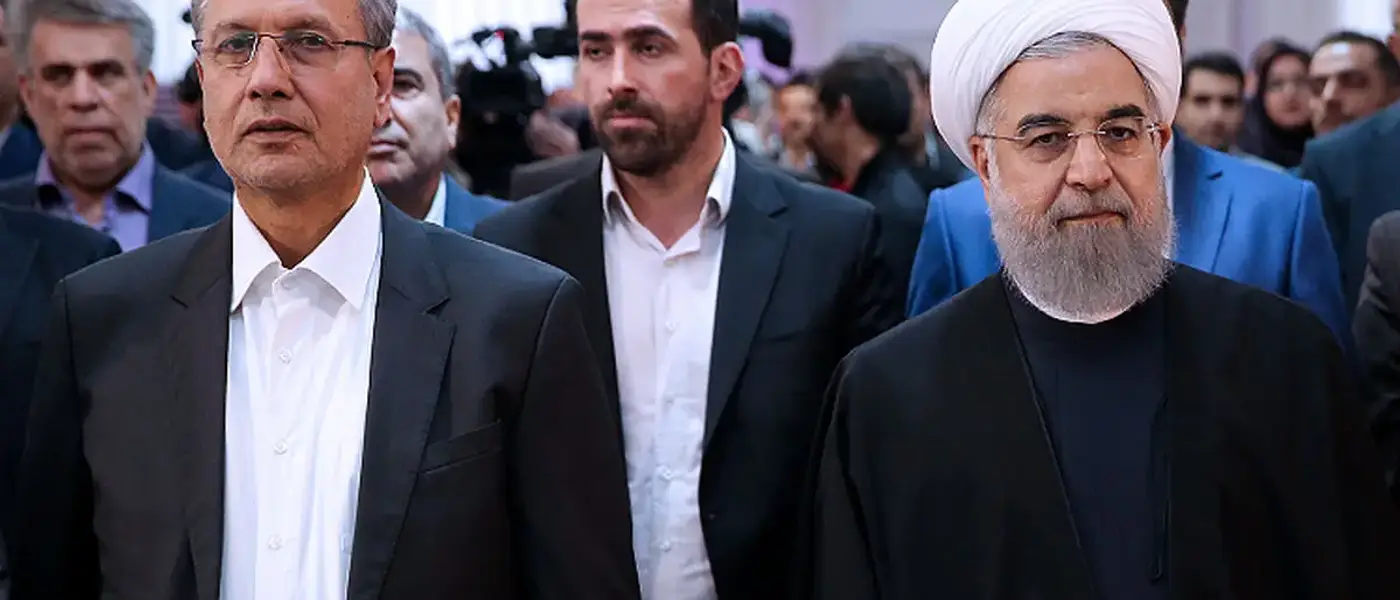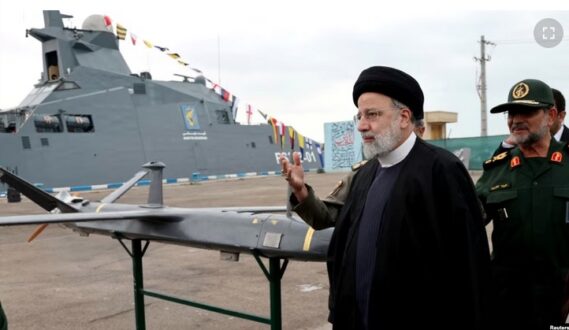iranintl – Former Iranian minister and long-time intelligence official Ali Rabiei has criticized the government’s domestic policies and Iran’s inherent weaknesses amid Tehran’s increasing tensions with Israel.

In an article published in Etemad daily on Friday, Ali Rabiei listed multiple crises and problems the Iranian government is currently facing. He emphasized that without addressing these issues, it would be unwise for Tehran to engage in a potential direct conflict with Israel, which would only exacerbate the situation.
Rabiei stressed the need for wise governance and effective crisis management. “We must first mitigate the impacts of existing crises to prevent the collapse of the system,” he emphasized.
He pointed to economic crises including inflation hovering around 50%, declining social cohesion, and the prevailing psychological instability within society as some of the pressing crises confronting the country and its political leadership. Given these circumstances, Rabiei advocated for the adoption of “conciliatory policies” to reduce tensions and foster unity and empathy within society.
Multiple nationwide anti-regime protests have shaken the clerical-military rulers of the Islamic Republic since 2018. Security forces have killed thousands of protesters and jailed tens of thousands of others to quell the largest unrests in November 2019 and in 2022-23. In the parliamentary elections on March 1, a sizeable majority of voters stayed home, further damaging the legitimacy of the ruling apparatus.
Although Rabiei did not explicitly mention the government’s compulsory hijab policy in his article, his statements could be interpreted as implicit criticism of the controversial hijab enforcement campaign initiated by law enforcement agencies, which came into effect on Saturday.
Earlier in the day, Iranian media reported the arrest of the wife and daughter of Ahmadreza Abedzadeh, a prominent figure in Iranian football history, in Tehran for refusing to comply with hijab regulations. Many women have forsaken the hijab, a phenomenon deeply unsettling for the ruling clerics, who see women’s defiance as a direct challenge to their ideological hold over the society.
The regime’s repressive domestic policies and mounting pressures, particularly on women, have fueled widespread dissatisfaction and delegitimized the government. Similarly, Tehran’s foreign policy towards Israel, and its controversial nuclear program, have isolated the country and badly damaged its oil-dependent economy.
In recent days, Iranian officials have escalated their anti-Israel rhetoric and vowed revenge for Israel’s April 1 strike that killed seven IRGC forces in Damascus. On Saturday, IRGC naval forces seized a Portuguese-flagged cargo ship near the Strait of Hormuz, alleging it belonged to an Israeli billionaire.
However, the Iranian market does not seem to view the IRGC’s actions as a success, as evidenced by the record fall in the value of the national currency, the rial. On Saturday, the US dollar rose to the unprecedented level of 660,000 rials in Iran’s free market.
Meanwhile, the relatively independent news website Khabaronline reported a significant increase in criticism against President Ebrahim Raisi, with many of his supporters calling for a cabinet reshuffle to address the demands of the people. According to the website, economic fluctuations have severely impacted the prices of essential goods and people’s livelihoods, necessitating urgent action to reverse the trend.
Eqtesad 24 news website reported in February that nearly one in every three Iranians currently lives below the poverty line due to soaring inflation over the past five years.
Follow developments on Iran International’s Live coverage of ongoing tensions between Iran and Israel.
 Shabtabnews In this dark night, I have lost my way – Arise from a corner, oh you the star of guidance.
Shabtabnews In this dark night, I have lost my way – Arise from a corner, oh you the star of guidance.



